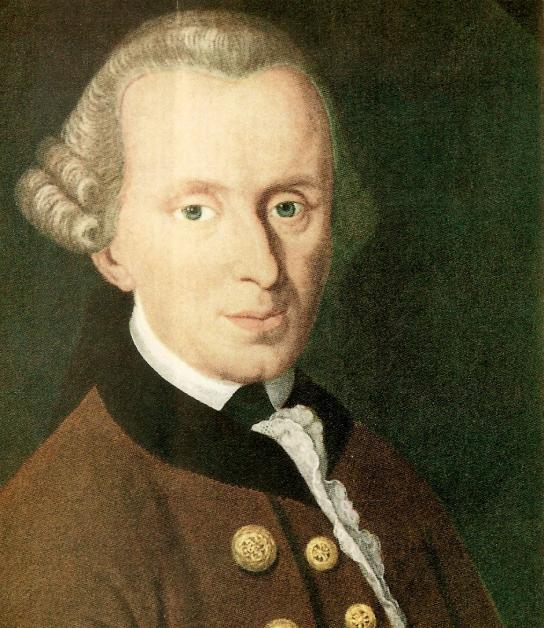Philosophy
Kant on Mortality
Kant’s Groundwork of the Metaphysics of Morals
Considered the foremost philosopher of the European Enlightenment, Kant lived in 18th century Prussia during the reign of Frederick the Great (from 1740 to 1786), a vigorous “absolute monarch,” who was hailed both as a military genius and a “philosopher king” personifying the Enlightenment (Voltaire). Frederick the Great improved Prussia’s judicial and educational systems, promoted the arts and sciences, and instituted the principle of freedom of conscience in the Prussian state.
In his essay “What is Enlightenment?” Kant depicts Prussia as a shining example of the Enlightenment movement and expresses his hopes that Prussia’s spirit of freedom, advanced by Frederick, would spread beyond the state’s boundaries. In the majority of his philosophical works, Kant was not very preoccupied with the concrete manifestations of political freedom. He developed instead a notion of freedom as "autonomy," the idea that that we should obey a law based on reason that we give to ourselves.
Kant was impressed by the progress of modern science (Copernicus, Galileo, Newton). As a result, he found the endless and seemingly insolvable metaphysical debates of his time about God, freedom, and immortality unbearable. He became convinced that if philosophy was to take its place among the sciences, it would have to proceed more critically. It would have to start from scratch and systematically investigate its own possibilities.
In his moral philosophy, Kant explains how reason can guide us to find morality in our actions. Hume and other empiricists of his time advocated the idea that our experience could help us to understand the grounds for moral activity, often in "moral sentiments." Kant brushes away this. Moral philosophy, in order to be considered a science, he says in Section II of the Groundwork, must “manifest its purity as sustainer of its own laws, not as herald of laws that an implanted sense or who knows what tutelary nature whispers to it” (Groundwork, p. 35). Following moral principles derived from the senses and from experience, he admits, “may always be better than nothing at all.” Yet, they “can never yield basic principles that reason dictates,” and since this is decidedly Kant’s goal, he rejects the empiricists’ approach to morality.

"Act in such a way that you treat humanity, whether in your own person or in the person of another, always at the same time as an end and never simply as a means.”
Immanuel Kant — Groundwork for the Metaphysics of Morals
Kant aimed for a moral philosophy founded on reason. More precisely, he sought to establish moral principles that “have their source entirely and completely a priori” and “expect nothing from the inclination of human beings.” A priori judgments, according to Kant, are judgments that are made independently of experience and that are held universally. In other words, he wanted to cut out any inconsistent empirical ‘mess.’ He sought a moral law independent from external circumstances (situations, customs, mores, societal laws), a universal law that is intelligible “for all rational beings” alike, regardless of the circumstances.
This premise led him to the bold statement in the first sentence of Section I, where he claims that the only thing that can be called good without limitation or qualification is the good will. Kant looked for goodness not in an object of our will but in the will itself. As Kant considered anything outside of the subject as dependent on empirical aspects, while he thought that our will can be guided by reason. By “placing” goodness within the individual (in the will), he makes it dependent on something that the individual—in fact, all rational individuals universally—can influence directly, namely the motivation underlying their actions.
Kant finds the a priori moral principle in the categorical imperative, which takes several forms, most famously: “act only in accordance with that maxim through which you can at the same time will that it become a universal law.” It is significant that this imperative giving commands to the individual’s reason in moral matters shall be categorical and not hypothetical. What counts is the individual’s determination of his or her will—not the potential or hypothetical consequences of the action, which should not influence the individual’s reasoning. The imperative must therefore be categorical, an unconditional requirement that asserts its authority in all circumstances.
If the individual acts “from duty,” i.e. from respect for a self-given moral law (specifically, according to the categorical imperative), he or she follows a rational principle instead of simply reacting to the situation. The individual is guided by a law given through her own reason and proves to be truly autonomous in the Kantian sense. “Enlightenment is man's emergence from his self-imposed nonage,” Kant had begun his Enlightenment essay. In the Groundwork, he shows how the use of reason can become the antidote to this nonage in the realm of morality.

Please log in to comment.